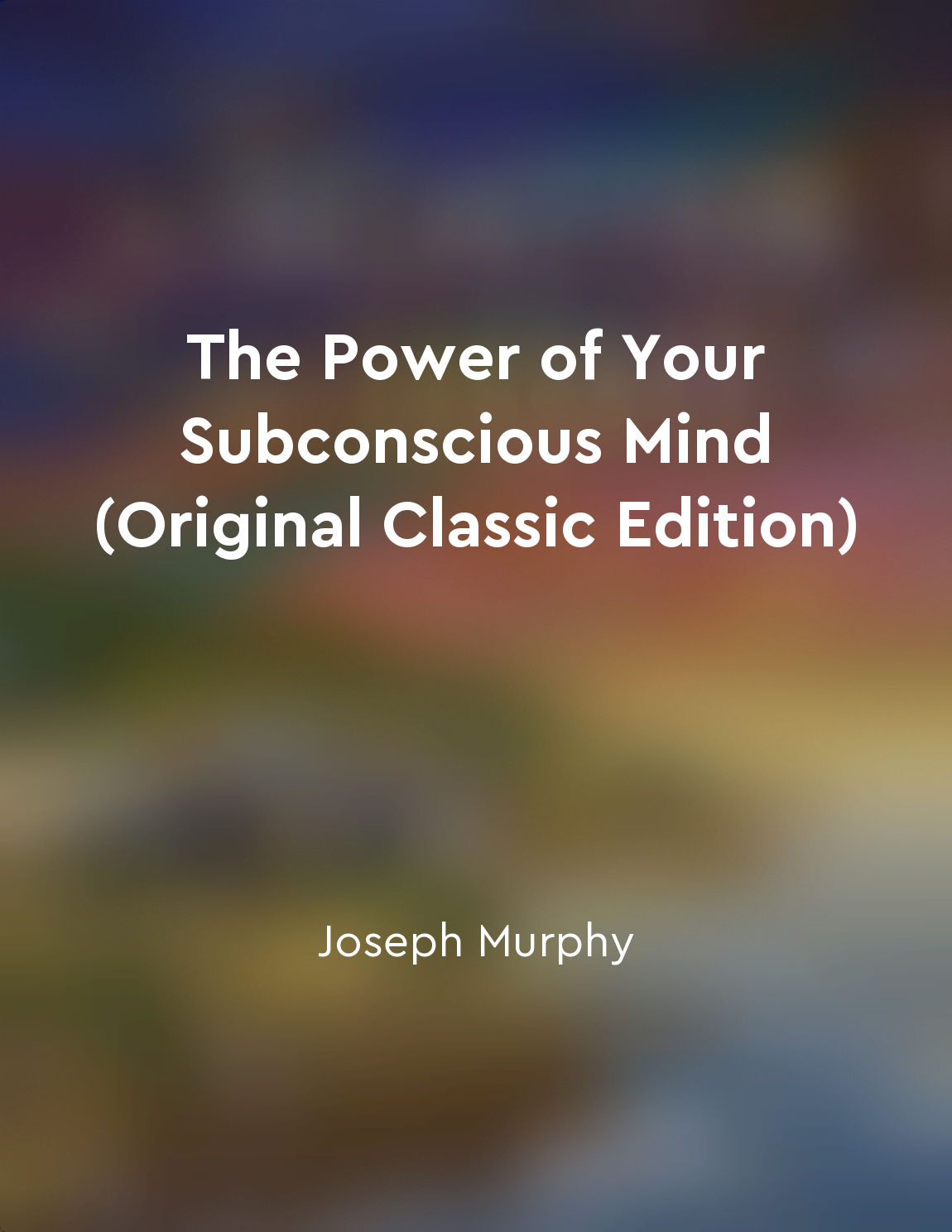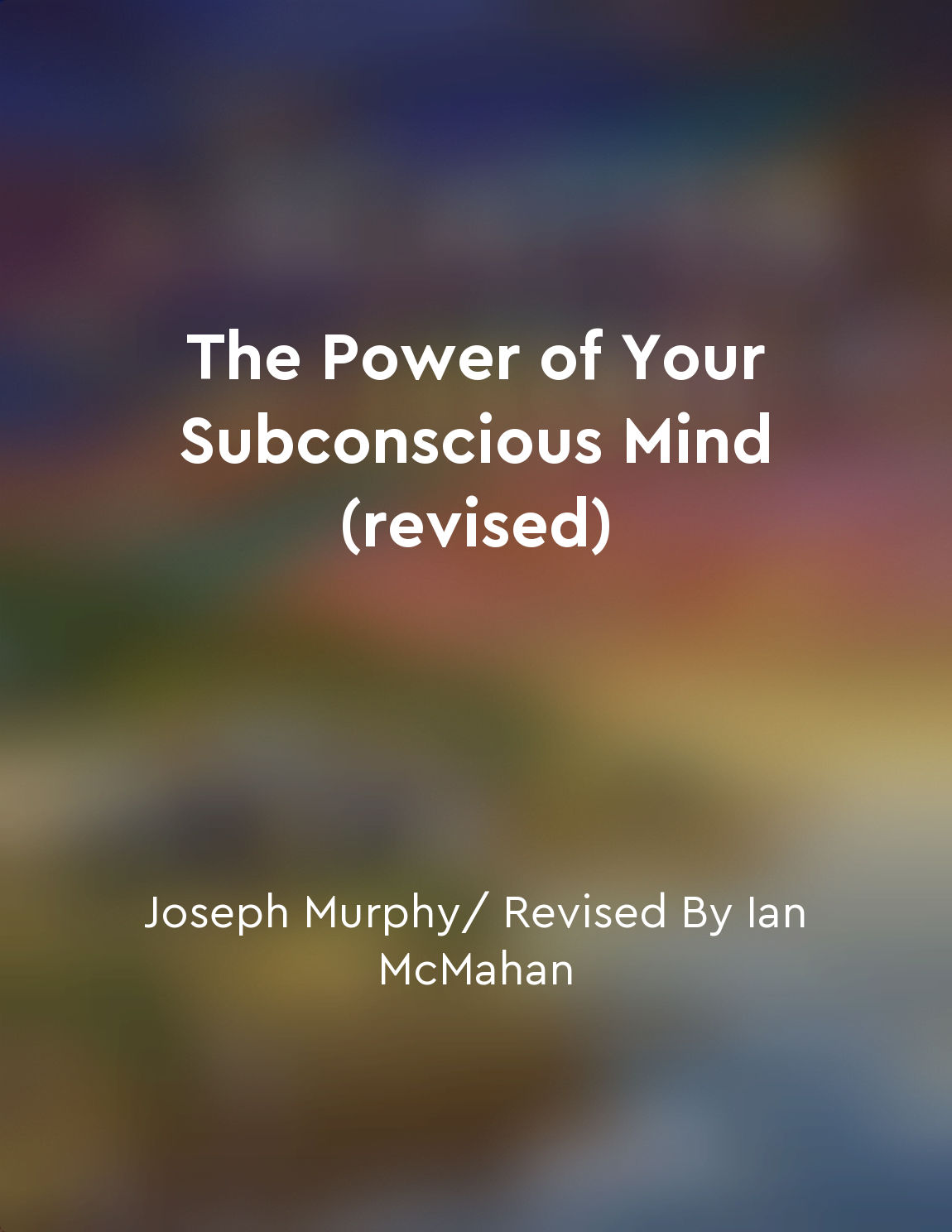Voluntary actions are not under mental control from "summary" of The Concept of Mind by Gilbert Ryle
According to Gilbert Ryle, the idea that voluntary actions are not under mental control is a fundamental aspect of understanding the nature of mind. This concept challenges the common belief that our voluntary actions are directly controlled by our mental states. Ryle argues that this view is based on a fundamental misunderstanding of the relationship between mind and body. Ryle explains that voluntary actions are actually a result of our dispositions, habits, and tendencies, rather than our conscious mental states. Our behaviors are shaped by our past experiences, our social conditioning, and our physical abilities. These factors all play a role in determining how we act in any given situation. Ryle uses the example of a skilled pianist to illustrate his point. The pianist does not need to consciously think about every movement they make while playing a piece of music. Their actions are the result of years of practice and training, which have become ingrained in their muscle memory. In this way, their performance is not under direct mental control, but rather a result of their learned behaviors. Similarly, Ryle argues that our voluntary actions in everyday life are also guided by our dispositions and habits. When we make a decision or engage in an action, it is not always a result of a conscious mental process. Our behaviors are often automatic, based on our ingrained tendencies and social conditioning.- Ryle's concept challenges us to rethink the traditional view of the mind as a separate entity that directly controls our actions. Instead, he suggests that our behaviors are shaped by a complex interplay of factors, including our dispositions, habits, and social influences. This understanding helps us to see that our actions are not always under direct mental control, but rather a result of a multitude of influences.
Similar Posts
The Goldilocks Rule states that habits are most effective when they are challenging yet achievable
The Goldilocks Rule emphasizes the importance of finding the right balance when it comes to forming new habits. According to th...

Your conscious and subconscious minds must be in harmony
Your conscious mind is the reasoning mind. It is that phase of mind which chooses. For example, you choose your books, your hom...
Various brain regions play specific roles in shaping behavior
Understanding the intricate workings of the human brain is crucial when attempting to decipher the complex nature of behavior. ...
Focus on positive outcomes
When you focus on positive outcomes, you are directing the tremendous power of your subconscious mind towards achieving your go...

Belief is key to manifestation
Your beliefs shape your reality. What you believe at the deepest level of your subconscious mind will manifest in your life. Yo...
Understanding social dynamics is essential for navigating relationships and society
To truly succeed in navigating relationships and society, one must possess a deep understanding of social dynamics. These dynam...
Human relationships hold the key to personal fulfillment
The human being is not an isolated creature, cut off from the rest of the world. His life is intertwined with the lives of othe...
The key to lasting habit change is persistence and determination
To truly change a habit, individuals must understand the importance of persistence and determination. Changing a habit is not a...
Changing habits requires identifying and addressing triggers
Identifying and addressing triggers is a crucial step in changing habits. Triggers are the cues that set off a habit loop, cons...
Mindfulness impacts overall wellbeing
Research has shown that maintaining a mindfulness practice can have a significant impact on one's overall wellbeing. By being p...

